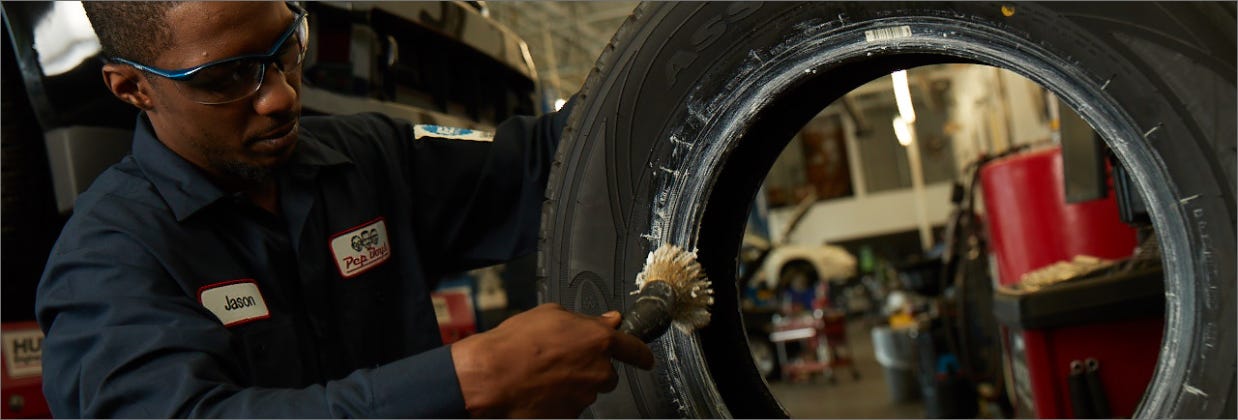Obtain Road-Ready with Professional GMC Tires Service at Morris Tires
Obtain Road-Ready with Professional GMC Tires Service at Morris Tires
Blog Article
Tire Solution: The Impact of Climate Condition
When it concerns making certain optimum performance and safety and security when driving, recognizing the influence of climate problems on tire service is essential. From scorching warmth to icy roads, each climate element can dramatically influence tire functionality and general driving experience. By delving right into the results of differing weather condition conditions on tires, chauffeurs can acquire beneficial insights that may enhance their car's performance and long life. In this discussion, we will explore the complex relationship between weather and tire solution, clarifying the value of weather-specific tire upkeep practices and factors to consider.
Warmth and Tire Performance
When revealed to heats, tires experience modifications in performance that can significantly influence vehicle safety and security and handling. The heat created from extended driving or heat conditions creates the tire rubber to soften, bring about decreased tread life and raised wear. As the rubber becomes softer, the tire's grip on the roadway reduces, impacting braking ranges and total grip. In severe situations, too much warmth can also trigger tire blowouts, posing an extreme safety and security risk to the lorry and its passengers.

Winter Effects
Cold weather conditions can have a significant effect on tire performance and safety and security. In cold weather condition, tires might likewise lose air stress extra rapidly, which can affect handling and fuel efficiency.
To alleviate the impacts of chilly climate on tires, it is essential to regularly examine tire pressure and inflate them to the maker's suggested levels. Using wintertime or all-season tires made for cold weather conditions can also improve traction and grasp on icy or snowy roads. Appropriate tire maintenance, including routine examinations for wear and damage, comes to be a lot more critical during cooler months to make sure ideal performance and safety.
Rainy Issues Effect
During rainy problems, tire efficiency and safety can be substantially influenced by the wet road surface areas and minimized exposure. The step pattern of tires plays a crucial function in keeping grip on damp roads. Tires with worn-out treads are a lot more prone to hydroplaning, where a layer of water accumulates between the road and the tire surface, resulting in loss of grip. To combat this, drivers should on a regular basis inspect their tires pop over to this site for adequate step depth and think about purchasing tires specifically designed for damp conditions.
In addition, wet climate can also decrease presence, making it testing for drivers to see the road ahead clearly (GMC Tire Service). In such problems, it is vital to adjust driving rates appropriately and preserve a risk-free complying with range to permit sudden stops. Correctly inflated tires can also aid in preserving control on damp roadways by offering much better handling and hold
Snow and Tire Safety
Snow-covered roads posture one-of-a-kind challenges for drivers, highlighting the value of correct tire option and maintenance. When driving in snowy conditions, having the best tires can make a substantial distinction in safety and security and performance. Wintertime tires are made with unique rubber compounds and walk patterns to offer much better traction on snow and ice contrasted to all-season tires. The much deeper footsteps and sipes of winter months tires aid grip the roadway much better, reducing the threat of sliding and sliding.

In addition, vehicle Check This Out drivers must take into consideration setting up tire chains in severe snowy problems. Tire chains give extra grip by clutching the snow and ice, improving security and control. It is crucial to comply with manufacturer directions when utilizing and setting up tire chains to stop damages to the tires and automobile (GMC Tire Service). By picking the best tires, maintaining correct inflation, and thinking about additional grip help like tire chains, vehicle drivers can boost their safety when navigating snow-covered roads.
Weather-Related Tire Maintenance
Weather-related tire maintenance encompasses a range of techniques intended at making sure ideal tire function and durability in various climate situations. One vital element of weather-related tire maintenance is tire pressure law. Inspecting tire walk consistently and changing tires when step wear gets to a specific depth is essential for maintaining traction and stability in unfavorable weather.
Final Thought
In verdict, weather conditions have a substantial influence on tire performance and security. From warmth affecting tire stress and wear to cool weather minimizing grip, it is necessary to think about the weather when preserving and making use of tires.
In More hints this discussion, we will explore the elaborate partnership in between weather problems and tire service, losing light on the value of weather-specific tire maintenance practices and considerations.

Report this page